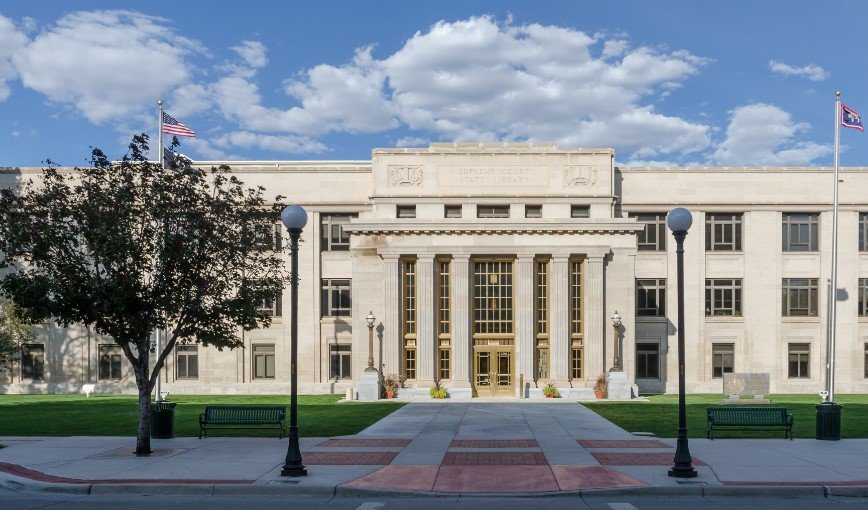The Montana Supreme Court recently heard oral arguments in the appeal of a landmark climate change case, Held v. State of Montana. This case, brought by 16 young plaintiffs, challenges the state’s policies on fossil fuel development and their impact on climate change. The plaintiffs argue that these policies violate their constitutional rights to a clean and healthy environment. The case has garnered national attention as it addresses the broader issue of governmental responsibility in combating climate change.
The Background of the Case
The Held v. State of Montana case began when 16 young Montanans filed a lawsuit against the state, claiming that its policies on fossil fuel development were contributing to climate change and violating their constitutional rights. In August 2023, District Court Judge Kathy Seeley ruled in favor of the plaintiffs, stating that the state’s laws requiring environmental regulators to ignore climate change impacts were unconstitutional. This ruling was seen as a significant victory for climate activists and set a precedent for similar cases across the country.
The state of Montana, however, appealed the decision to the Montana Supreme Court. The state’s attorneys argued that Montana alone cannot be held responsible for global climate change and that the issue is too complex to be resolved through judicial decisions. They also contended that even if the Supreme Court upholds the lower court’s ruling, it does not necessarily mean that state agencies must consider climate change impacts in their permitting processes.

The plaintiffs’ attorneys, on the other hand, argued that the state’s policies directly harm the young plaintiffs by exacerbating climate change and its effects. They presented evidence from climate scientists and medical professionals to support their claims. The plaintiffs’ legal team emphasized that the case is about protecting the constitutional rights of Montana’s youth and ensuring a livable climate for future generations.
Arguments Presented to the Supreme Court
During the oral arguments, both sides presented their cases to the Montana Supreme Court. The state’s attorneys reiterated their position that Montana cannot be solely responsible for addressing global climate change. They argued that the state’s contribution to climate change is minimal compared to other states and countries. They also emphasized that the judiciary is not the appropriate branch of government to address such a complex and global issue.
The plaintiffs’ attorneys countered by highlighting the specific impacts of climate change on the young plaintiffs. They argued that the state’s policies are directly contributing to these impacts and that the state has a constitutional obligation to protect its citizens’ rights to a clean and healthy environment. The plaintiffs’ legal team also pointed out that the lower court’s ruling was based on substantial evidence and should be upheld by the Supreme Court.
The justices of the Montana Supreme Court asked probing questions to both sides, seeking to understand the broader implications of the case. They inquired about the state’s responsibilities under the Montana Constitution and the potential consequences of upholding or overturning the lower court’s ruling. The justices also considered the role of the judiciary in addressing climate change and the limits of judicial authority in such matters.
Implications of the Case
The outcome of the Held v. State of Montana case could have far-reaching implications for climate litigation in the United States. If the Montana Supreme Court upholds the lower court’s ruling, it could set a precedent for other states to consider the climate impacts of their policies and actions. This could lead to increased scrutiny of fossil fuel projects and greater emphasis on environmental protection in state decision-making processes.
On the other hand, if the Supreme Court overturns the lower court’s ruling, it could discourage similar lawsuits and reinforce the idea that climate change is a global issue that cannot be addressed through state-level litigation. This could have a chilling effect on climate activism and limit the avenues available for citizens to hold their governments accountable for environmental harm.
Regardless of the outcome, the Held v. State of Montana case highlights the growing importance of climate litigation as a tool for addressing environmental issues. It underscores the role of the judiciary in interpreting constitutional rights in the context of climate change and the need for governments to take proactive measures to protect the environment. The case also demonstrates the power of youth activism in driving legal and policy changes to combat climate change.

Comments